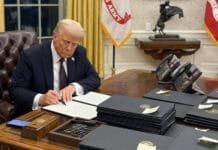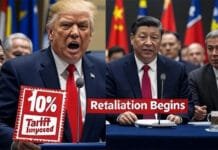Argentina has recently made a strategic decision that reverberates across diplomatic corridors and economic forums. The country, under the leadership of President Javier Milei, has chosen to abstain from joining the BRICS (Brazil, Russia, India, China, and South Africa) coalition, a move that sets Argentina apart in its approach to global partnerships.
A Deliberate Choice for Argentina
President Milei, in a letter addressed to fellow BRICS leaders, articulated Argentina’s stance on its current non-membership. He emphasized that, for the time being, becoming a formal BRICS member might not align with Argentina’s interests. However, he expressed a keen interest in fostering bilateral relationships within the organization to boost trade and investment flows.
This decision comes amidst the backdrop of six new countries officially becoming BRICS members on January 1st, including Argentina. The addition of Egypt, Iran, Ethiopia, Saudi Arabia, the United Arab Emirates, and Argentina marks a significant expansion of the coalition.
A Shift in Foreign Policy
President Milei highlighted a divergence in Argentina’s foreign policy from previous administrations. The change, he stated, is a result of a thorough reevaluation of the nation’s global engagement strategies. The letter underscored that the current government is steering Argentina toward a unique foreign policy stance that prioritizes economic interests and bilateral partnerships.
BRICS: A Platform for Economic Collaboration
While not embracing formal BRICS membership at present, Argentina is keen on leveraging the platform for economic collaboration. President Milei expressed a strong commitment to enhancing trade and investment through bilateral engagements with BRICS nations. This pragmatic approach aims to harness the economic potential of these emerging markets without necessarily committing to a formal alliance.
The Dynamics of BRICS Expansion
The inclusion of Argentina in BRICS reflects a broader trend of expanding the coalition to include diverse economies. This move not only reinforces the relevance of BRICS in global affairs but also opens up new avenues for collaboration across continents.
Navigating Global Alliances
Argentina’s decision to step back from formal BRICS membership while actively pursuing economic partnerships underscores a nuanced approach to global alliances. President Milei’s administration is positioning Argentina strategically to navigate the complexities of international relations, emphasizing economic interests while maintaining diplomatic flexibility.
In conclusion, as Argentina charts its course in the dynamic landscape of global politics, the decision to abstain from formal BRICS membership reflects a calculated strategy aimed at maximizing economic benefits. The nation, under President Milei’s leadership, is poised to play a pivotal role in shaping the future of international collaborations.















